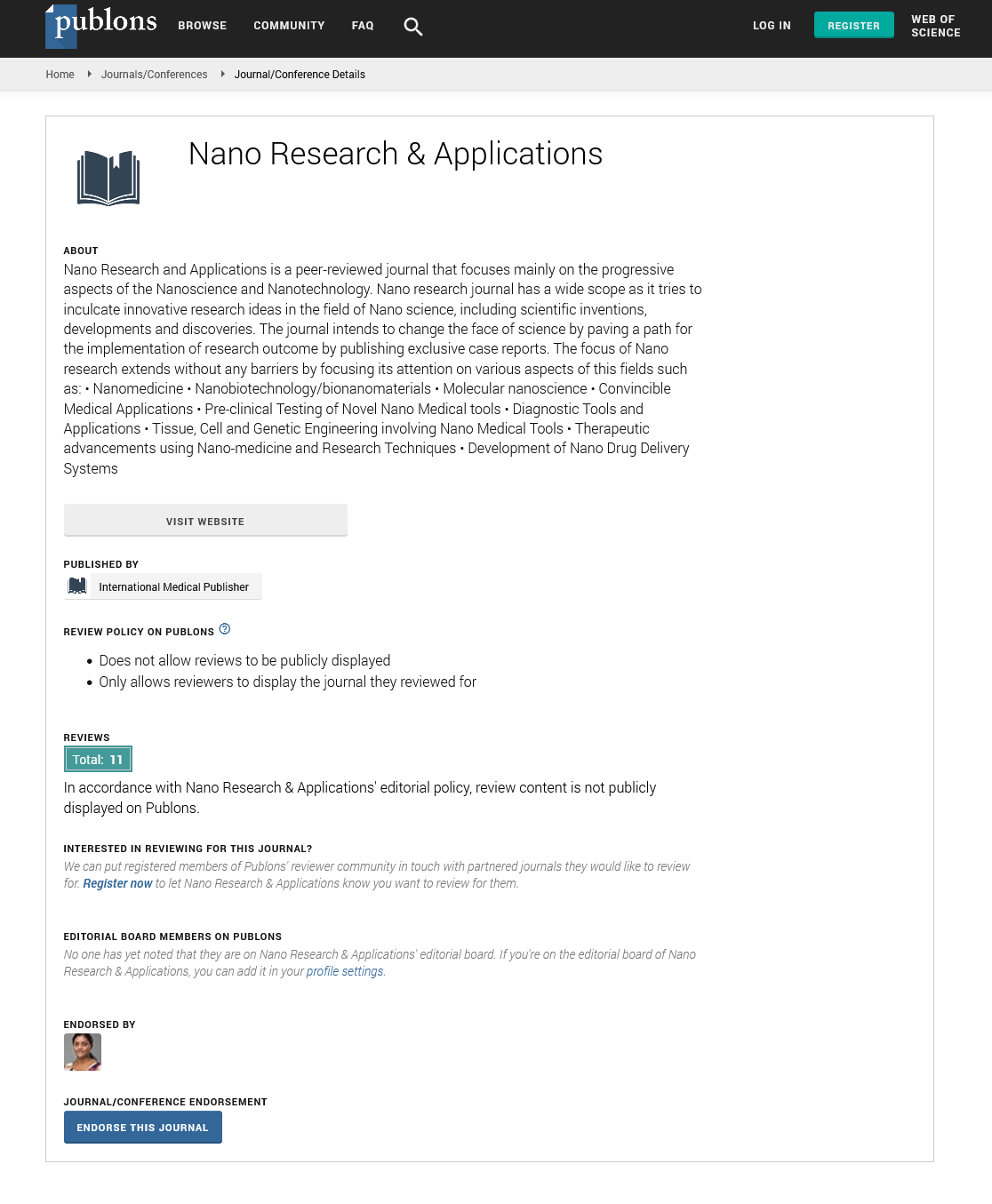ISSN : 2471-9838
Nano Research & Applications
Selective laser processing of metal nanomaterials for flexible and stretchable electronics applications
EuroSciCon Conference on Nanotechnology & Smart Materials
October 04 -06 ,2018 Amsterdam , Netherlands
Seung Hwan Ko
Seoul National University, Republic of Korea
ScientificTracks Abstracts: Nano Res Appl
DOI: 10.21767/2471-9838-C6-024
Abstract
It is well expected that the future electronics will be in the form of wearable electronics. Google’s Smart Glass and Apple’s iWatch are the first generations of wearable electronics. However, they are still mainly composed of rigid electronics, even though human body is soft and elastic. To realize more meaningful and practical wearable electronics, electronic components should be stretchable or at least flexible. We developed various laser based selective process of metal nanomaterials for flexible and stretchable electronics fabrication. The proposed technology has the following features. Nanomaterials have unique thermal properties such as size dependent melting temperature drop. This will allow novel metal deposition method development on plastic substrate without thermal damage to the substrate. Nanomaterials have unique optical properties such as strong surface plasmon absorption peak. Due to this characteristic, if the wavelength is tuned properly, very efficient and strong laser absorption is possible. Laser can be used as a local heat source to selectively induce the melting of nanomaterials with the minimum or no thermal damage to the substrate. Nanomaterials have enhanced mechanical properties. This will allow the development of the very reliable flexible and stretchable electronics. As a feasibility test of nanomaterial based on flexible and stretchable electronics research, we demonstrated a highly stretchable conductor, highly transparent touch panels, stretchable heaters, flexible fuel cells, flexible solar cells, stretchable nanogenerator etc. This is just a very tiny fraction of application area of our works. We expect our approach can be applied to huge range of wearable electronics elements in flexible and stretchable forms and ultimately to all future electronics. Therefore, this research results have a great ripple effect on various future electronics development and will be sustainably studied. Considering the huge impact, originality and advantages of our research results, this paper will provide basic research results and becomes a classical reference for future wearable electronics field.
Biography
Seung Hwan Ko is a Professor in Applied Nano and Thermal Science Lab, Mechanical Engineering Department Seoul National University, Korea. Before joining Seoul National University, he was a Faculty at KAIST, Korea. He received his PhD degree in Mechanical Engineering from UC Berkeley in 2006. He worked as a Researcher at Lawrence Berkeley National Lab until 2009. His research interest is Laser Assisted Nano/ Micro Fabrication process development, laser-nanomaterial interaction, low temperature process development for flexible, stretchable and wearable electronics, and crack assisted nanomanufacturing.
E-mail: maxko@snu.ac.kr
Google Scholar citation report
Citations : 387
Nano Research & Applications received 387 citations as per Google Scholar report
Nano Research & Applications peer review process verified at publons
Abstracted/Indexed in
- Google Scholar
- China National Knowledge Infrastructure (CNKI)
- Directory of Research Journal Indexing (DRJI)
- WorldCat
- Publons
- Secret Search Engine Labs
- Euro Pub
Open Access Journals
- Aquaculture & Veterinary Science
- Chemistry & Chemical Sciences
- Clinical Sciences
- Engineering
- General Science
- Genetics & Molecular Biology
- Health Care & Nursing
- Immunology & Microbiology
- Materials Science
- Mathematics & Physics
- Medical Sciences
- Neurology & Psychiatry
- Oncology & Cancer Science
- Pharmaceutical Sciences
